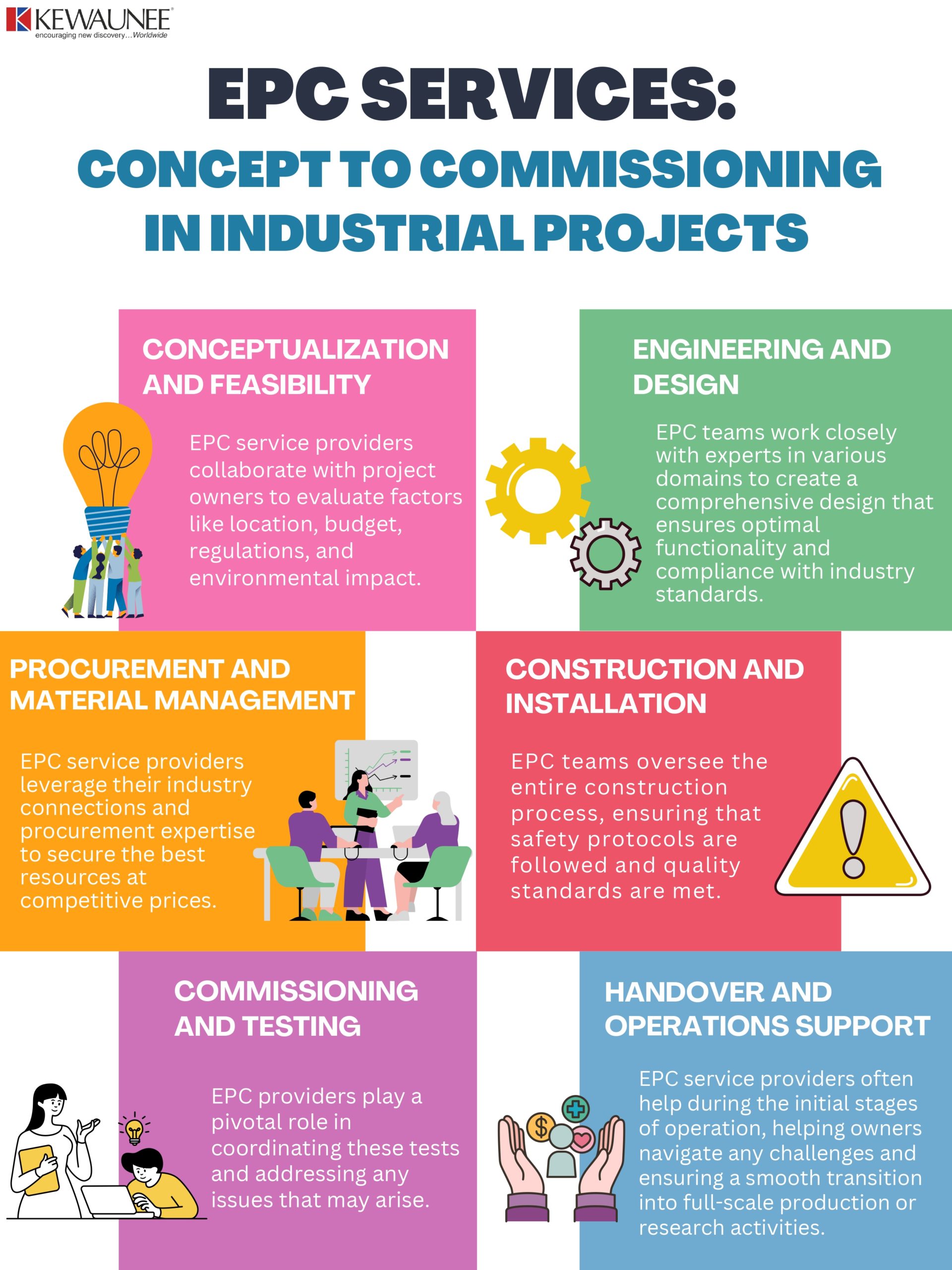EPC Services: Concept to Commissioning in Industrial Projects
In the realm of industrial projects, the journey from concept to commissioning is a complex and multifaceted process. At its core, it involves turning ideas and plans into a fully operational and efficient facility.
This transformation is made possible through the expertise of Engineering, Procurement, and Construction (EPC) service providers.
In this blog, we’ll delve into the crucial role of EPC services in industrial projects, breaking down the journey into key phases.
1. Conceptualization and Feasibility Assessment
This initial phase involves conceptualizing the industrial project and assessing its feasibility.
In the beginning, there’s an idea—a vision for an industrial facility that can range from manufacturing plants to research laboratories. The first task is to assess the feasibility of turning this idea into a reality.
EPC service providers collaborate with project owners to evaluate factors like location, budget, regulations, and environmental impact. During this phase, the concept takes shape, and a clear roadmap is established.
2. Engineering and Design
This phase encompasses the detailed engineering and design work required for the project.
Once the concept is refined and feasible, the focus shifts to the intricate engineering and design aspects. This includes architectural planning, structural design, process engineering, and equipment specifications.
EPC teams work closely with experts in various domains to create a comprehensive design that ensures optimal functionality and compliance with industry standards.
3. Procurement and Material Management
This phase involves procuring the necessary materials and equipment for the project.
With the design in place, the next step is to source the materials and equipment required for construction.
EPC service providers leverage their industry connections and procurement expertise to secure the best resources at competitive prices. Effective material management is crucial to ensure timely deliveries and cost control.
4. Construction and Installation
This phase focuses on the actual construction and installation of the industrial facility.
The construction phase is where the project begins to take physical form. Skilled professionals, including civil engineers, electricians, and equipment installers, work diligently to bring the design to life.
EPC teams oversee the entire construction process, ensuring that safety protocols are followed and quality standards are met.
5. Commissioning and Testing
This phase involves testing and commissioning the industrial facility to ensure it functions as intended.
Before the facility can become fully operational, it undergoes rigorous testing and commissioning. This includes functional testing of equipment, safety assessments, and performance evaluations.
EPC providers play a pivotal role in coordinating these tests and addressing any issues that may arise.
6. Handover and Operations Support
This phase marks the handover of the completed facility to the owner and provides support for initial operations.
Once the facility has been successfully commissioned, it is handed over to the project owner. However, the support doesn’t end there.
EPC service providers often help during the initial stages of operation, helping owners navigate any challenges and ensuring a smooth transition into full-scale production or research activities.
Summary
Navigating the journey from concept to commissioning in industrial projects requires a collaborative and multidisciplinary approach. EPC services serve as the guiding force that transforms ideas into tangible facilities.
From conceptualization and engineering to procurement, construction, testing, and beyond, EPC providers play a pivotal role at every step, ensuring that industrial projects come to fruition efficiently and effectively. This process represents the intricate dance of turning industrial dreams into reality.
Comments are closed.











